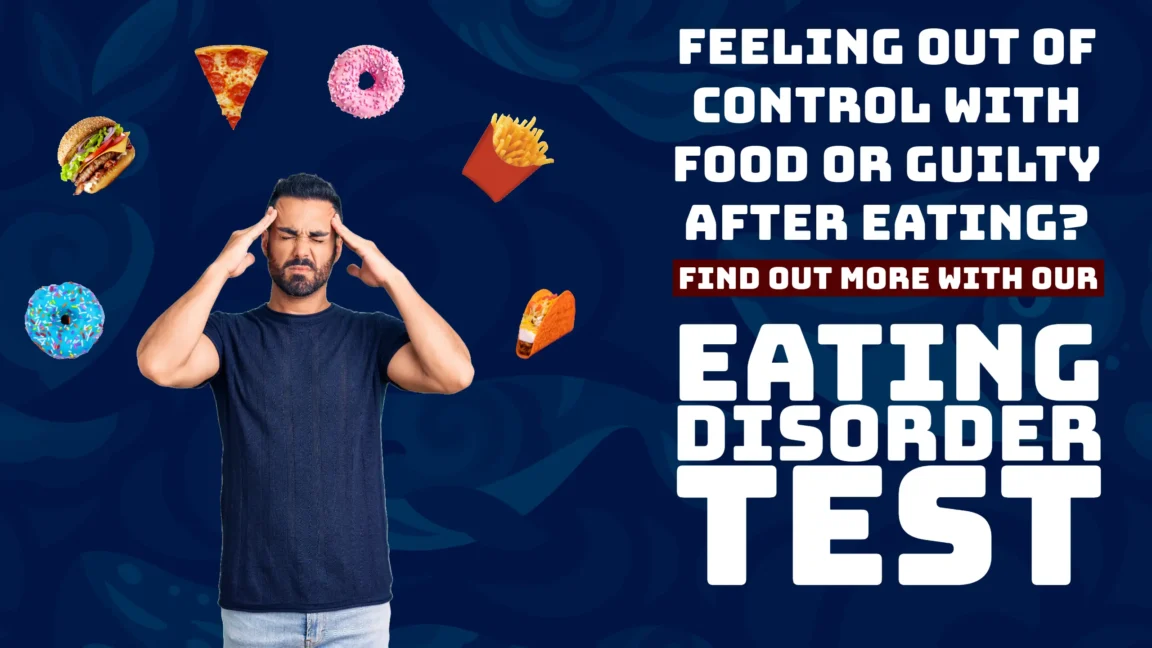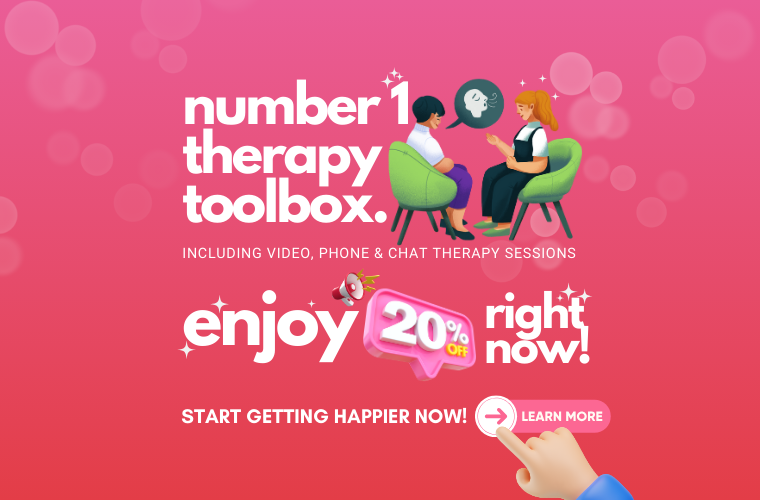Eating Disorder Test (Uncover Your Relationship with Food)
Not all challenges with food are obvious. Suppose you notice uncomfortable patterns in your eating habits or attitude toward food and body image. In that case, our Eating Disorder Test is a sensitive tool designed to help you understand these nuances better. This test helps you learn about your eating and feelings, guiding you to a better balance with food and yourself.
What Is an Eating Disorder?
The DSM, a major mental health book, includes eating disorders as serious health problems. It causes major changes in eating behaviors, thoughts, and emotions.
An Eating Disorder is more than an unhealthy diet or a desire to look a certain way; it’s a profound and often dangerous relationship between food and body image that can consume one’s life.
Whether it’s anorexia nervosa, bulimia nervosa, or binge-eating disorder, these conditions can make day-to-day life challenging and impact your physical health in serious ways.
Unlike temporary diet phases or brief disinterests in food, eating disorders are persistent and can cause long-term damage to your body and mind.
Lifestyle Adjustments:
Engage in Mindful Eating: If you’re struggling with food-related stress, it’s crucial to confront these issues directly. Experts often recommend mindfulness techniques, which focus on being present and fully engaged with your eating experiences. This approach can help reduce binge eating and emotional eating.
Stay Physically Active: Physical activity is a well-known mood booster. Regularly exercising can alleviate symptoms of depression and anxiety, often intertwined with eating disorders. This is not just about burning calories; it’s about creating a positive mind-body connection.
Consider Nutritional Choices: Eating food significantly impacts your mood and energy levels. A balanced diet can help stabilize mood swings and improve overall well-being. Think about how your food choices might affect your mood and body image.
Prioritize Quality Sleep: Disrupted sleep can exacerbate the emotional and physical symptoms of eating disorders. A regular sleep routine can make you feel better and more energetic. This helps you handle stress and eat better.
Why Take the Eating Disorder Test?
If you’re worried about how you eat and feel about food and your body, an Eating Disorder Test can help you understand your feelings. This test can indicate whether you exhibit symptoms commonly associated with eating disorders. This might help you decide to get professional help.
This Eating Disorder Test is not an official diagnosis but a helpful tool.
How the Test Works
Our Eating Disorder Test is like a personal reflection on your recent feelings and behaviors around food. You’ll answer 15 questions that reflect common symptoms of eating disorders. Each question has five possible responses: Never, Rarely, Sometimes, Often, or Very Often.
Expert Insight
Dr. Eric Stice is a Stanford University professor specializing in Psychiatry and Behavioral Sciences. He studies the early signs of eating disorders, obesity, substance abuse, and depression to understand better why they happen. He also uses brain imaging in his research.
Additionally, Dr. Stice is dedicated to the design, evaluation, and dissemination of prevention and treatment strategies for eating disorders, obesity, and depression. Notably, he has developed a dissonance-based eating disorder treatment and prevention program, implemented with over 6 million young girls across 140 countries, demonstrating his significant impact in the field.
Scoring is assigned as follows:
- Never: 0
- Rarely: 1
- Sometimes: 2
- Often: 3
- Frequently: 4
Interpreting Your Test Results
After completing the Eating Disorder Test, you’ll tally your score to see which category you fall into. Each category offers a detailed explanation and recommendations for potential next steps, including seeking professional evaluation and considering therapy options.
Recommendations to Prevent and Manage Eating Disorders:
Stay active, make thoughtful food choices, and maintain a regular sleep schedule to support your overall mood and well-being. Engaging in enjoyable activities and seeking social support can also be beneficial. Speaking with a medical professional can be beneficial if you have concerns about your eating habits. They can suggest treatments like talking to a therapist or, if needed, taking medicine.
Important Note:
This Eating Disorder Test is a self-assessment tool, not a substitute for a professional diagnosis. Eating disorders and other mental health conditions require a comprehensive evaluation by a qualified professional. If you’re concerned about your eating habits or mental health, don’t hesitate to reach out for professional help.
Instructions:
Answer each question honestly, reflecting on your recent feelings. This approach will provide the most accurate reflection of your current state. Remember, this Eating Disorder Test is about understanding your experiences and seeking appropriate support, not labeling yourself.
Disclaimer
This Eating Disorder Test serves for self-assessment and does not intend to diagnose or treat any condition. Please consult a qualified mental health professional for a professional evaluation and personalized treatment plan.
For more information:
Understanding Types of Eating Disorders: From Binge Eating to Avoidant/Restrictive Food Intake
Eating disorders affect many types of individuals in various ways. This section will explore some of these disorders, including how they manifest and what they entail. Understanding these conditions is crucial in recognizing the signs early and seeking appropriate help.
Eating Large: Binge Eating Disorder (BED)
Binge Eating Disorder involves episodes where you eat large amounts of food quickly, often to the point of discomfort. It usually comes with a feeling of losing control, followed by feelings of shame, distress, or guilt. Unlike bulimia, there are no regular attempts to ‘make up’ for the binges through vomiting, fasting, or excessive exercise.
Types of Eating Disorders: Beyond Just Anorexia and Bulimia
While anorexia and bulimia are the most widely known, there are several types of eating disorders. Each affects individuals differently and comes with its unique challenges. This includes conditions like;
Orthorexia, which is an obsession with healthy eating that actually becomes detrimental to one’s health,
and Pica, a compulsion to eat non-food items.
Eating Disorders, Including Avoidant/Restrictive Food Intake Disorder (ARFID)
Unlike other eating disorders, a desire for thinness does not drive Avoidant/Restrictive Food Intake Disorder (ARFID). Instead, it means eating differently because you’re not interested in food or you avoid certain foods because of how they look, taste, or smell. It can lead to significant nutritional deficiencies and weight loss, severely affecting a person’s social functioning.
Noticing signs of eating disorders, like binge eating and ARFID, helps people understand how they eat and get the help they need. Each disorder presents unique challenges, but recovery is possible with the right support and treatment. If you’re worried about your eating habits or think you have an eating disorder, talk to a doctor or healthcare worker.
Final Thoughts:
This test signifies a courageous step toward understanding and addressing your relationship with food. If you ever feel overwhelmed or need immediate support, remember that help is available.
- Question of
How often do you find yourself eating large amounts of food in a short period?
- Very often
- Frequently
- Occasionally
- Rarely
- Never
Correct Wrong
- Question of
Do you ever feel out of control when you’re eating?
- Always
- Regularly
- Often
- Sometimes
- Never
Correct Wrong
- Question of
How often do you skip meals to control your weight?
- Every day
- Often
- Several times a week
- Occasionally
- Never
Correct Wrong
- Question of
Do you feel guilty after eating?
- Always
- Regularly
- Often
- Sometimes
- Never
Correct Wrong
- Question of
Are you preoccupied with thoughts of food, weight, or body image?
- Constantly
- Infrequently
- Frequently
- Occasionally
- Rarely
Correct Wrong
- Question of
How often do you eat alone because you are embarrassed about how much you’re eating?
- Very often
- Often
- Sometimes
- Rarely
- Never
Correct Wrong
- Question of
Do you ever eat in secret?
- Always
- Regularly
- Often
- Sometimes
- Never
Correct Wrong
- Question of
How often do you feel depressed about your eating habits?
- Every day
- Sometimes
- Several times a week
- Occasionally
- Never
Correct Wrong
- Question of
Do you worry about losing control over how much you eat?
- All the time
- Frequently
- Often
- Sometimes
- Never
Correct Wrong
- Question of
Have you ever made yourself vomit after eating?
- Regularly
- Occasionally
- Sometimes
- Once or twice
- Never
Correct Wrong
- Question of
Do you exercise excessively to control your weight?
- More than once a day
- Daily
- Often
- A few times a week
- Rarely or never
Correct Wrong
- Question of
How do you feel about your eating habits?
- Very unhealthy
- Moderately unhealthy
- Somewhat unhealthy
- Generally healthy
- Very healthy
Correct Wrong
- Question of
Do you think you have an eating problem?
- Definitely
- Likely
- Possibly
- Not sure
- No
Correct Wrong
- Question of
Has anyone expressed concern about your eating habits or weight loss?
- Yes, many people
- Some have noticed
- A few people
- Someone once mentioned it
- No, never
Correct Wrong
- Question of
Do you often eat until you feel uncomfortably full?
- Always
- Frequently
- Often
- Sometimes
- Never
Correct Wrong


